22+ Sample Vacation Rental Agreement
-
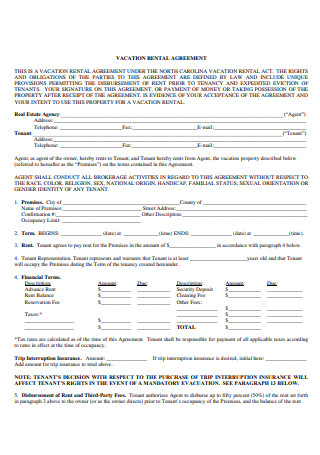
Vacation Rental Agreement Template
download now -
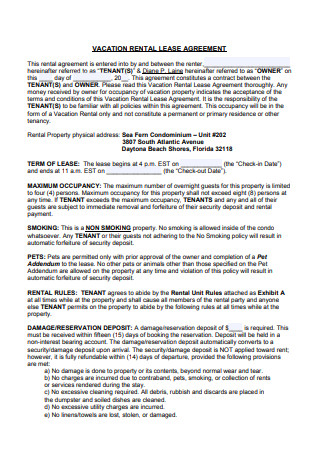
Vacation Rental Lease Agreement
download now -
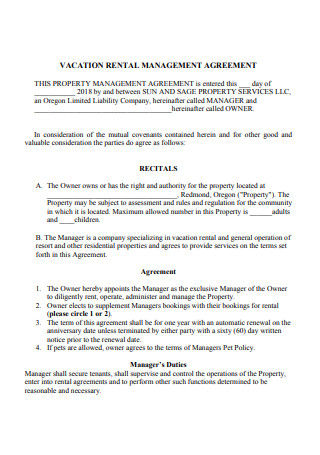
Vacation Rental Management Agreement
download now -
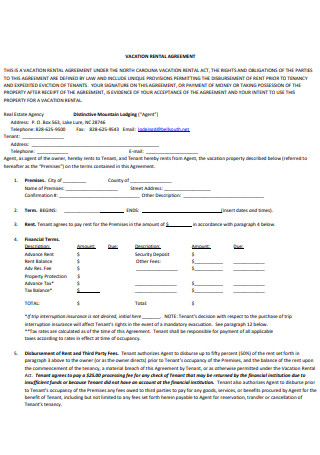
Basic Vacation Rental Agreement
download now -
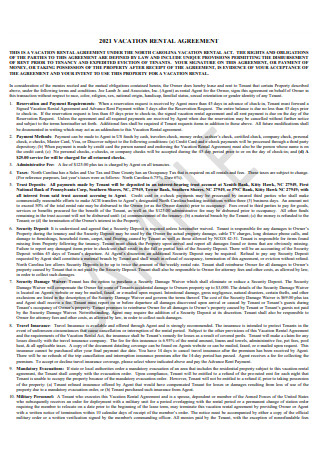
Sample Vacation Rental Agreement
download now -
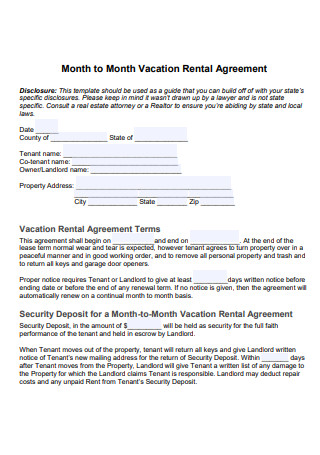
Month to Month Vacation Rental Agreement
download now -
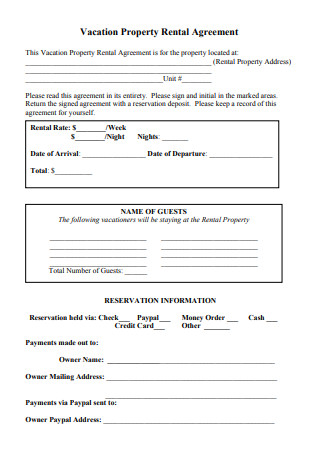
Vacation Property Rental Agreement
download now -
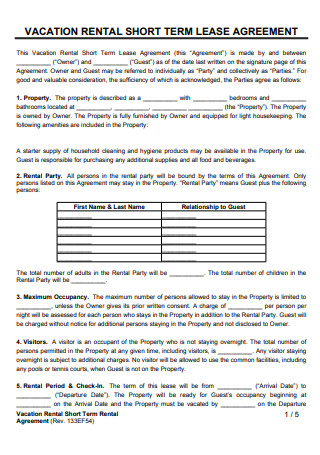
Vacation Rental Short Term Lease Agreement
download now -
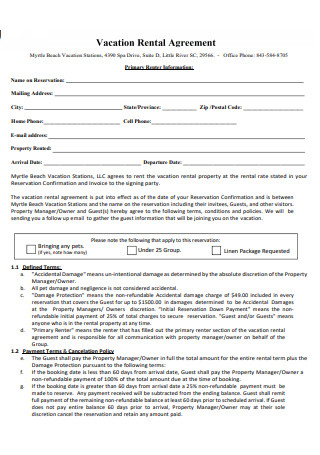
Formal Vacation Rental Agreement
download now -
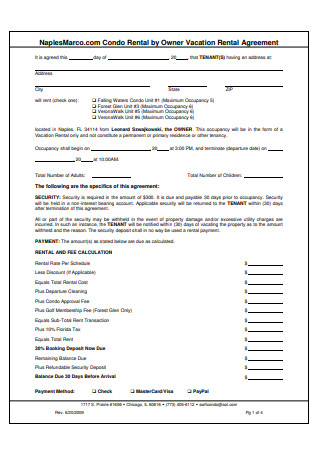
Vacation Rental by Owner Agreement
download now -
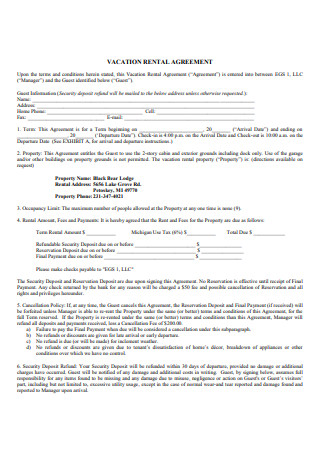
Vacation Rental Agreement in PDF
download now -
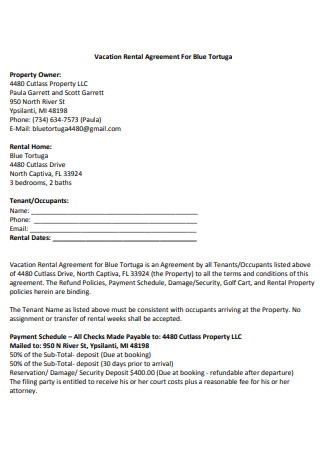
Standard Vacation Rental Agreement
download now -
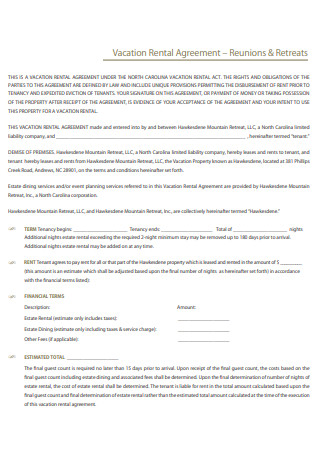
Vacation Rental Agreement Example
download now -
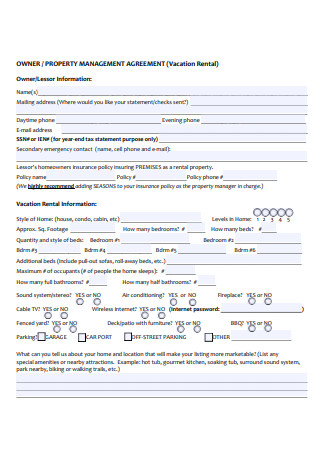
Vacation Rental Property Management Agreement
download now -
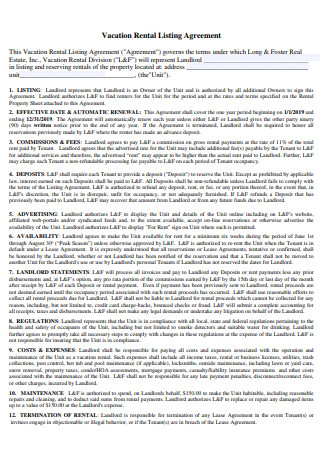
Vacation Rental Listing Agreement
download now -
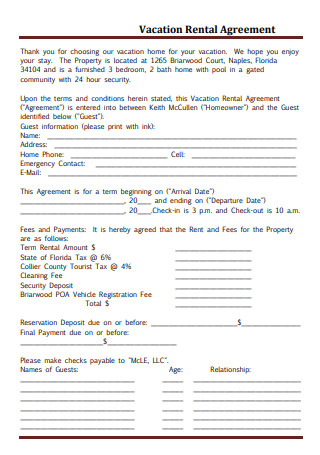
Vacation Rental Agreement Format
download now -
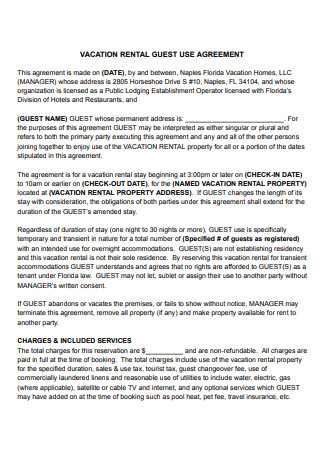
Vacation Rental Guest Use Agreement
download now -
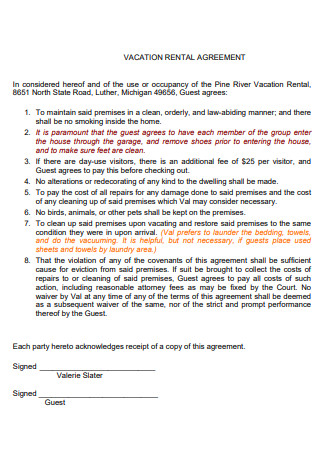
Printable Vacation Rental Agreement
download now -
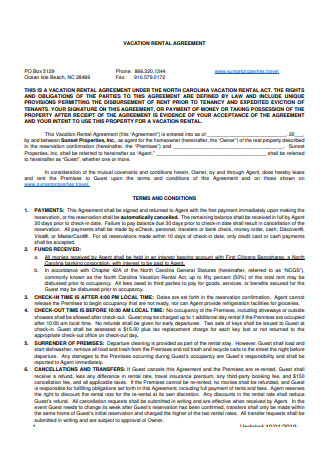
Draft Vacation Rental Agreement
download now -
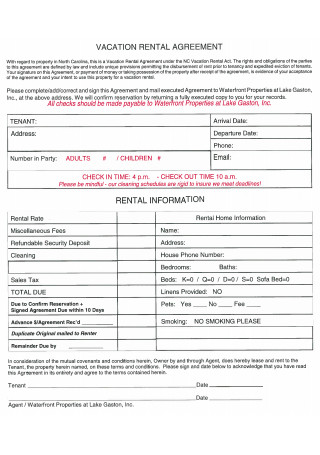
Vacation Rental Information Agreement
download now -
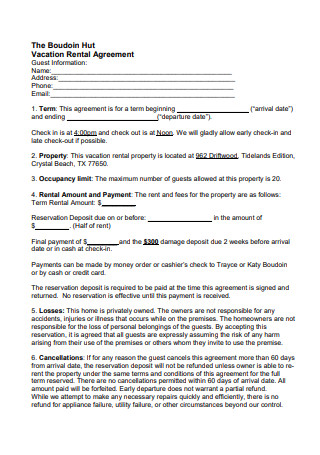
Hut Vacation Rental Agreement
download now -

Simple Vacation Rental Agreement
download now -
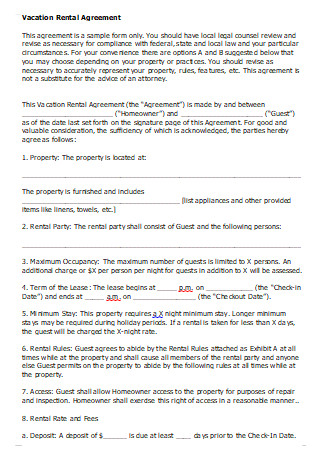
Vacation Rental Agreement in DOC
download now
FREE Vacation Rental Agreement s to Download
22+ Sample Vacation Rental Agreement
What Is a Vacation Rental Agreement?
Vacation Rental Ideas
Common Provisions in a Vacation Rental Agreement
How to Create a Vacation Rental Agreement
FAQs
How do I write a vacation rental agreement?
Is a vacation rental a lease?
What is better: Airbnb or Vrbo?
What Is a Vacation Rental Agreement?
A vacation rental agreement is a written contract made between two parties, namely the owner or operator and the tenant or lessee. It is an agreement that establishs the terms and ground rules for renting out a space for vacation.
According to a 2021 online article published by CNBC, the most searched travel bucket list experience was visiting the Burj Khalifa in Dubai. With over 10,000 monthly global searches, it claims the top spot while sailing around the Statue of Liberty in New York came in close second.
Vacation Rental Ideas
The options travelers and vacationers have today are definitely more varied and diverse. It is becoming more and more common for big groups and entire families to rent out a whole house exclusively. These ideas will help you with your own vacation ideas!
Common Provisions in a Vacation Rental Agreement
A vacation rental agreement is needed to lay down the foundations so as to prevent any miscommunication or unnecessary conflict between tenant and landlord. Terms and conditions may vary and they depend on the type of accommodation. However, there are some basic provisions that are considered universal. The following examples are just some standard terms and conditions found in a vacation rental agreement:
How to Create a Vacation Rental Agreement
A vacation rental agreement can be pretty straightforward. The homeowner or landlord is responsible for drafting the agreement. If you are in need of a quick but comprehensive vacation rental agreement, there are available online templates ready to be customized and printed. Once you’ve found the right template, follow the easy guide below to start editing:
Step 1: Introduction of Parties
Always start by filling in the complete names of the parties in agreement, with each clearly identified as lessor and lessee. Do not forget to include the date the contract was made effective. State the purpose of the agreement in the introductory paragraph as well.
Step 2: Basic Descriptions
After the brief introductory paragraph of parties, list down all the basic information about the rental home- its complete address or location, a brief description of the home, etc. Some examples of descriptions could include the number of bedrooms and washrooms in the house, facilities and amenities for the guests to use, check-in and check-out dates, and the place’s approximate location in relation to key areas such as police stations and hospitals. It would be wise to also include the name and contact information of the designated point person, in case of emergencies.
Step 3: House Rules
After covering the basic descriptions in your agreement, you can start enumerating the different terms and conditions. The house rules could be considered the meat of the contract. Make sure to specify each provision clearly and concisely. You can get a few ideas for provisions from the examples stated above. It is important to always lay down some house rules so that guests are made fully aware of what their responsibilities are as lessees.
Step 4: Confirmation
Once you’ve clearly set all terms and conditions, you can wrap up your contract with a formal declaration of agreement. This is done to further validate the pact. Always leave enough space at the bottom page for both parties to affix their names, date, and signature.
FAQs
How do I write a vacation rental agreement?
To write a vacation rental agreement, start by introducing the parties. This means providing the complete names of both the lessor and lessee. Afterwards, list down all the basic details regarding the rental of the property. Outline the terms and conditions or house rules, as it is commonly referred to. Conclude your vacation rental agreement by inserting a formal confirmation where the signatories declare their full acceptance and comprehension of the aforementioned terms and conditions. If you want to craft your own vacation rental agreement but do not want to start from scratch, using a ready-made and downloadable template from above will make your task easier.
Is a vacation rental a lease?
A vacation rental arrangement is considered a short-term lease. Since a vacation rental agreement is made between a guest and a property owner, the latter effectively leases out the space to the former.
What is better: Airbnb or Vrbo?
Both Airbnb and Vrbo are popular booking platforms. Both have similarities and differences that the guest would need to weigh for himself or herself. The question of which is better would greatly depend on the individual needs and preferences of the guest. According to nerdwallet.com, when it comes to broadest selection and options, Airbnb comes out on top with close to 5.6 million active listings as of 2020. The popular platform also outperforms Vrbo as far as flexibility and booking processes are concerned.
Vacations rentals are a popular alternative to the usual hotel bookings. With vacation rentals, travelers and tourists can get to experience a whole other level of leisure and activity. But before you book that dream vacation home, just make sure you can get behind the conditions contained in the vacation rental agreement. Create your own vacation rental agreement today by downloading any sample template above!
